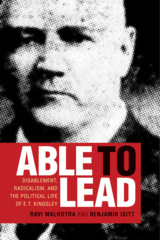
From Victoria to Vladivostok
Canada’s Siberian Expedition, 1917-19
As the last guns sounded on the Western Front, 4,200 Canadian soldiers, some of them conscripts, travelled from Victoria to Vladivostok to open a new theatre of war in Siberia. Part of the Allied intervention in Russia’s civil war, the force sought to defeat Bolshevism, but grim conditions, conflict among the Allies, and local opposition eventually forced Canada to evacuate the troops.
This groundbreaking book brings to a life a forgotten chapter in the history of Canada and Russia. Combining military and labour history with the social history of British Columbia, Québec, and Russia, Benjamin Isitt examines how the Siberian Expedition exacerbated tensions within Canadian society at a time when a radicalized working class, many French-Canadians, and even the soldiers themselves objected to Canada’s military adventure designed to alter the outcome of the Russian Revolution.
Military historians have tended to write off the Siberian Expeditionary Force as a mere sideshow, an embarrassing episode in the larger context of the First World War. By bringing the story of the expedition to centre stage, Benjamin Isitt illuminates a forgotten chapter in the history of labour radicalism and the complex factors that have shaped foreign policy. The result is a highly readable and provocative work that challenges public memory of the First World War.
This book will appeal to anyone interested in military history, labour history, and the history of Canada and Russia.
Benjamin Isitt’s fascinating study of the Canadian contribution to the military expedition to Siberia designed to crush Lenin’s nascent Communist state punches a large hole in how much of Canada’s chattering class conceives of the country.
Short, inglorious, hugely unpopular at the time and largely forgotten now: most Canadians probably have no idea that, once upon a time, this country invaded Russia ... Isitt’s extensive analysis of why we were there – mostly trying to deprive revolutionary workers at home of an international beacon – is convincing, as is his ironic conclusion: the blatant class warfare of the expedition did more to incite radicalism at home than it did to suppress it in Russia. Less than six months after the Victoria mutiny, a rising tide of industrial unionism would spark the Winnipeg General Strike.
The story of 4,200 Canadian soldiers sailing from British Columbia to the Russian Far East is told in From Victoria to Vladivostok, a fascinating account by the historian Benjamin Isitt.
At a time where our mission in Afghanistan is evolving, and leaders come to grips with the 'Afghanization' of the military effort there; and, where the future of Canada’s and the international community’s involvement in Libya is being widely discussed ... this book highlights many lessons concerning strategic objectives, one being military intervention, and the necessity for public support for same. Highly recommended.
Now the Vladivostok story can be known in detail from the excellent research of Benjamin Isitt, in his new book From Victoria to Vladivostok: Canada’s Siberian Expedition, 1917-19, a fascinating and wide-ranging account.
[A] fascinating study of the canadian contribution to the military expedition to Siberia.
Isitt's work is new, innovative, and important. He deftly weaves the Canadian working class opposition to war and the rising leftist sentiment among workers with the inner life of the Siberian Expedition itself. That inner life included opposition to the Siberian venture among a substantial section of the contingent. No less important, he melds a national story with an international one. He reveals new aspects of international cooperation in the attempt to suppress the Bolshevik revolution as well as international rivalries among the countries that intervened in Russia.
From Victoria to Vladivostok sheds new light on a part of Canadian history that previous scholars have written off as a mere sideshow, a rather embarrassing episode that had no impact on the First World War. In contrast, Isitt sees the problems that befell the Expedition as being rooted in conflicting views of Bolshevism in Canada, and different perceptions of the logic behind an intervention in Russia. In this, his contribution is both significant and original.
Benjamin Isitt is a historian specializing in twentieth-century Canadian and world history, with emphasis on labour, social movements, and the process of cultural change.
Preface
Introduction: Why Siberia?
Part 1: Canada’s Road to Siberia
1 1917: A Breach in the Allied Front
2 Vladivostok: 1917
3 The Road to Intervention
4 Mobilization
5 Departure Day
Part 2: To Vladivostok and Back
6 Vladivostok: 1919
7 “Up Country” and Evacuation
8 Afterword
Conclusion
Appendices
Notes; Bibliography; Index








